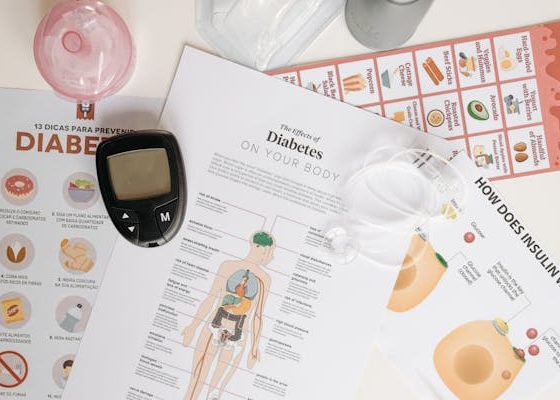
Healthy skin is not only a sign of beauty but also a reflection of overall well-being. The skin is the body’s largest organ and requires consistent care and attention to maintain its health and vitality. In this article, we delve into a variety of Healthy Skin Tips that cater to different skin types and concerns, helping you achieve that radiant glow from the inside out.
Understanding Your Skin Type
Before diving into specific Healthy Skin Tips, it’s crucial to understand your skin type. Skin types generally fall into five categories: normal, oily, dry, combination, and sensitive. Each type has unique characteristics and requires tailored care.
- Normal Skin: Balanced, with minimal imperfections and a healthy glow.
- Oily Skin: Prone to excess sebum production, leading to shiny skin and potential breakouts.
- Dry Skin: Lacks moisture and often feels tight or flaky.
- Combination Skin: Features both oily and dry areas, typically with an oily T-zone (forehead, nose, and chin).
- Sensitive Skin: Easily irritated, often reacting to products or environmental factors.
Identifying your skin type helps in selecting the appropriate products and routines, enhancing the effectiveness of your skincare regimen.
Daily Skincare Routine: Foundation of Healthy Skin
A consistent daily skincare routine is the cornerstone of healthy skin. Follow these basic steps to establish a solid foundation:
- Cleansing: Use a gentle cleanser suited to your skin type to remove dirt, oil, and makeup. Cleansing twice daily (morning and night) prevents clogged pores and breakouts.
- Exfoliating: Regular exfoliation removes dead skin cells, promoting cell turnover and a smoother complexion. Use a mild exfoliant 2-3 times a week, adjusting frequency based on skin sensitivity.
- Toning: A good toner balances the skin’s pH levels and prepares it for better absorption of subsequent products. Choose alcohol-free toners to avoid drying out your skin.
- Moisturizing: Keeping your skin hydrated is essential. Select a moisturizer that fits your skin type—light lotions for oily skin, and richer creams for dry skin.
- Sun Protection: Daily application of sunscreen with at least SPF 30 protects against harmful UV rays, preventing premature aging and skin cancer.
Healthy Skin Tips for Specific Concerns
Acne-Prone Skin
For those struggling with acne, here are targeted Healthy Skin Tips:
- Non-Comedogenic Products: Opt for products labeled non-comedogenic to avoid clogging pores.
- Salicylic Acid and Benzoyl Peroxide: Incorporate these ingredients to combat acne. Salicylic acid helps unclog pores, while benzoyl peroxide kills acne-causing bacteria.
- Avoid Over-Cleansing: Excessive washing can strip the skin of natural oils, triggering more oil production and worsening acne.
- Hydration: Keep your skin hydrated, even if it’s oily. Dehydrated skin can produce more oil to compensate.
Anti-Aging
To address aging skin, consider these Healthy Skin Tips:
- Retinoids: These Vitamin A derivatives boost collagen production and cell turnover, reducing fine lines and wrinkles.
- Antioxidants: Use serums containing Vitamin C, E, and ferulic acid to neutralize free radicals and brighten skin.
- Hyaluronic Acid: This powerful hydrator plumps the skin, reducing the appearance of wrinkles.
- Peptides: Peptides support collagen and elastin production, firming the skin.
Hyperpigmentation
For tackling hyperpigmentation and uneven skin tone, follow these Healthy Skin Tips:
- Vitamin C: Brightens skin and fades dark spots by inhibiting melanin production.
- Niacinamide: Reduces the appearance of dark spots and improves skin texture.
- Chemical Exfoliants: Alpha hydroxy acids (AHAs) and beta hydroxy acids (BHAs) promote cell turnover, helping to fade pigmentation.
- Sunscreen: Prevents existing pigmentation from darkening and new spots from forming.
Lifestyle Factors for Healthy Skin
Your lifestyle plays a significant role in skin health. Here are some Healthy Skin Tips that extend beyond topical treatments:
Diet
- Hydration: Drink plenty of water to keep your skin hydrated and flush out toxins.
- Balanced Diet: Eat a diet rich in fruits, vegetables, lean proteins, and healthy fats. Foods high in antioxidants, such as berries and leafy greens, combat free radicals and promote healthy skin.
- Limit Sugar and Processed Foods: Excessive sugar can lead to glycation, damaging collagen and elastin.
Sleep
- Adequate Rest: Aim for 7-9 hours of sleep per night. Sleep is crucial for skin repair and regeneration.
- Elevate Your Head: Sleeping with your head slightly elevated can reduce puffiness and prevent fluid accumulation around your eyes.
Stress Management
- Stress Reduction Techniques: Practice yoga, meditation, or deep breathing exercises to manage stress. Chronic stress can exacerbate skin conditions like acne and eczema.
- Regular Exercise: Physical activity increases blood flow, nourishing skin cells and keeping them vital.
Advanced Treatments and Professional Care
For more stubborn skin issues or advanced care, professional treatments can make a significant difference. Here are some options:
Chemical Peels
Chemical peels use acids to exfoliate the skin deeply, addressing concerns like acne scars, hyperpigmentation, and fine lines. They vary in strength from superficial to deep peels.
Microdermabrasion
This non-invasive procedure exfoliates the skin using tiny crystals, improving texture and tone.
Microneedling
Microneedling involves tiny needles creating micro-injuries in the skin, stimulating collagen production and improving skin texture.
Laser Treatments
Laser therapies target specific skin concerns, such as pigmentation, redness, or wrinkles, by using concentrated light beams to penetrate the skin.
Professional Facials
Regular facials by a licensed esthetician can deeply cleanse, exfoliate, and nourish the skin, tailored to your specific needs.
Natural and DIY Healthy Skin Tips
For those who prefer natural remedies, here are some effective DIY Healthy Skin Tips:
Honey Masks
Honey has antibacterial and moisturizing properties. Apply raw honey as a mask for 10-15 minutes to hydrate and soothe the skin.
Aloe Vera
Aloe vera is excellent for soothing irritated or sunburned skin. Use pure aloe gel directly from the plant or store-bought pure aloe vera gel.
Green Tea
Rich in antioxidants, green tea can be used as a toner or face mask to reduce inflammation and combat acne.
Oatmeal
Oatmeal has anti-inflammatory properties and is suitable for sensitive skin. Mix it with water or yogurt to create a calming mask.
Seasonal Skincare Tips
Your skin’s needs can change with the seasons. Adapt your routine with these Healthy Skin Tips:
Winter
- Heavy Moisturizers: Use richer creams to combat dry, cold air.
- Humidifiers: Add moisture to the air in your home to prevent skin from drying out.
- Gentle Cleansers: Avoid harsh cleansers that strip natural oils.
Summer
- Lightweight Products: Switch to lighter, oil-free moisturizers and serums.
- Increased SPF: Ensure you apply sunscreen more frequently, especially if you’re swimming or sweating.
- Aloe Vera: Soothe sun-exposed skin with aloe vera gel.
Healthy Skin Tips for Different Age Groups
Different stages of life bring varying skincare needs. Here are tailored Healthy Skin Tips for each age group:
Teens
- Gentle Cleansing: Use a gentle cleanser to manage oil and acne without over-drying.
- Spot Treatments: Apply targeted treatments for acne, avoiding harsh all-over products.
20s
- Preventative Care: Start using sunscreen daily and consider antioxidant serums to prevent early signs of aging.
- Hydration: Ensure your skin stays hydrated with a good moisturizer.
30s
- Anti-Aging Ingredients: Introduce retinoids and peptides into your routine to combat fine lines.
- Eye Cream: Start using an eye cream to address early signs of aging around the eyes.
40s and Beyond
- Intense Hydration: Focus on deeply hydrating products and consider incorporating hyaluronic acid.
- Firming Treatments: Use products and treatments that promote collagen production to maintain skin elasticity.
Common Skincare Myths Debunked
With a plethora of skincare advice available, it’s easy to fall prey to myths. Here are some common myths debunked:
- Myth: Oily skin doesn’t need moisturizer. Fact: Oily skin needs hydration too. Choose a lightweight, non-comedogenic moisturizer.
- Myth: Natural ingredients are always safe. Fact: Natural doesn’t always mean safe. Some natural ingredients can cause allergic reactions or irritate the skin.
- Myth: Tanning beds are safer than the sun. Fact: Tanning beds emit harmful UV rays and increase the risk of skin cancer.
- Myth: You only need sunscreen on sunny days. Fact: UV rays penetrate clouds and windows, so daily sunscreen use is crucial.
Conclusion: Embracing Healthy Skin Tips for Lifelong Radiance
Achieving healthy, radiant skin is a journey that involves understanding your skin type, following a consistent routine, and making lifestyle adjustments. By incorporating these comprehensive Healthy Skin Tips into your daily life, you can enhance your skin’s health and maintain its natural beauty. Remember, the key to great skin lies in a holistic approach that combines proper skin care, a balanced diet, adequate hydration, and a healthy lifestyle. Embrace these tips and enjoy the benefits of glowing, healthy skin for years to come.






